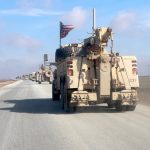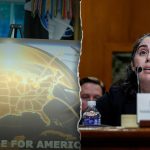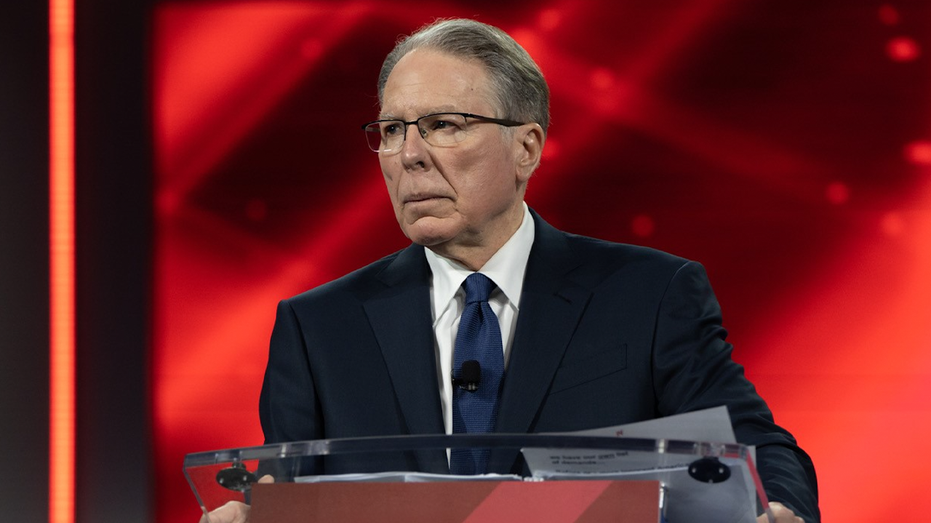A Manhattan jury in the civil corruption case brought by New York Attorney General Letitia James against the National Rifle Association (NRA) and its former CEO found the organization liable for financial mismanagement.
The jury determined that Wayne LaPierre’s violations of his duties cost the NRA $5,400,000, but he had already paid roughly $1 million back to the organization.
LaPierre was ordered to repay the group $4,351,231.
The New York jury said that the NRA’s CEO for three decades misspent millions of dollars of the group’s money on luxury personal purchases.
The decision came at the end of five days of deliberations.
James brought forth the lawsuit in 2020, and named the NRA, LaPierre, former CFO Wilson “Woody” Philips and general counsel John Frazer as defendants. The attorney general’s office argued the executives used millions in company funds on luxury personal purchases and trips, including hundreds of thousands of dollars on LaPierre’s trips to the Bahamas, according to the AG’s office.
The NRA, however, has long said the case was politically motivated by an attorney general who campaigned for the office by vowing to investigate and take on the group. James was elected to office in November 2018 and publicly slammed the NRA in the lead-up to her becoming New York’s chief law officer. While on the campaign trail, James called the group “an organ of deadly propaganda” and vowed to investigate whether the NRA could keep its charity status.
“The NRA is an organ of deadly propaganda masquerading as a charity for public good,” James wrote in a campaign press release back in July 2018. “Its agenda is set by gun-makers who think arming teachers is a better idea than making it harder for kids to get military grade guns.”
Weeks before her election, she described the NRA as “a terrorist organization” in comments to Ebony magazine, and “a criminal enterprise” in remarks to local New York media.
In August 2020, she filed a dissolution lawsuit aiming to break up the NRA over alleged corruption. A New York Supreme Court justice ultimately blocked James’ effort to dissolve the organization in a 2022 decision, saying the suit did not meet the requirements of ordering a “corporate death penalty” on the group. The judge did allow the suit against the NRA’s top officials to proceed. James accused officials at the NRA of “years of illegal self-dealing” that provided a “lavish lifestyle.”
WAYNE LAPIERRE ANNOUNCES RESIGNATION AS NRA CHIEF
At the trial, which began last month, LaPierre and the three other defendants were accused by Assistant Attorney General Monica Connell of getting caught “with their hands in the cookie jar” and argued the four were trying to deflect and downplay the use of the funds.
“They’re going to try to get you to think about anything except what happened to those cookies,” she said. “They’re going to blame anyone else but themselves.”
State attorneys argued during the trial that LaPierre spent roughly $11 million of NRA funds on private flights and about $500,000 on a handful of trips to the Bahamas, as well as “appearing to dole out lucrative no-show contracts to former employees in order to buy their silence and continued loyalty.”
LaPierre, who stepped down as NRA CEO and executive vice president last month after serving since 1991, said earlier in the trial he had made governance changes within the organization since 2021 and had paid about $300,000 back to the group. LaPierre’s attorney argued during the trial that the former NRA chief’s use of private flights was necessary for safety reasons, due to his prominent national stature amid the acrimonious gun debate.
“This is a story made up by a person with an agenda that wanted him off the field,” LaPierre’s attorney Kent Correll said Thursday in closing arguments.
“If this case was so important, why wouldn’t she be here?” he added, referring to James’ absence from the courtroom Thursday.
The NRA’s legal team argued during the trial that the organization worked to address any potential corruption when such issues were first raised by internal complaints.
“When the fraud was discovered, it dug in. It turned over the rocks it was told not to overturn,” attorney Sarah Rogers said. “The NRA left no stone unturned.”
“If this was a case about corruption,”she added, “it wasn’t by the NRA.”
























